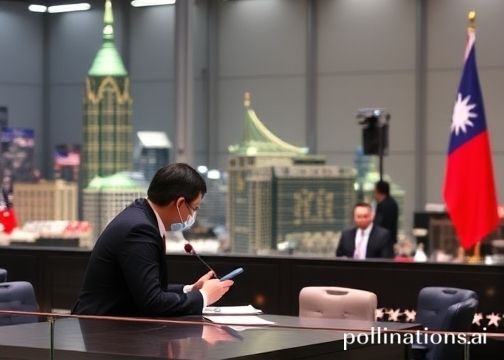Taiwan's Government Broadens Support to Shield Businesses from US Tariffs
Premier Cho Jung-tai Announces Expanded Aid Package Amid Economic Uncertainty

The Executive Yuan in Taiwan, under the direction of Premier Cho Jung-tai (卓榮泰), has significantly expanded the eligibility criteria for its NT$88 billion (US$2.7 billion) support package. The move aims to alleviate the impact of potential US tariffs on local businesses.
Previously, businesses had to meet specific criteria, such as demonstrating a 15% single-month revenue loss and employing fewer than 30 people. These requirements have been removed to broaden access to the financial aid.
Small, medium, and micro businesses can now apply for loans of up to NT$35 million per company with a fixed interest rate of 2.22% and a six-year repayment period. Equipment purchases can be financed with a seven-year repayment term.
Recognizing the specific challenges faced by small and medium-sized enterprises, the government has allocated an additional NT$5 billion in loan funding, supplementing the existing NT$11.6 billion stimulus package.
During a meeting, Premier Cho Jung-tai stated that the government will release detailed information next week outlining how the NT$88 billion support package will help local industries mitigate the effects of US tariffs. Further specifics on how industrial, agricultural, and fishery sectors can access the assistance will be revealed soon.
The Cabinet had initially planned to announce the support package earlier, but postponed it to allow for revisions after discussions between Premier Cho Jung-tai, President William Lai (賴清德), and business representatives. The package will include NT$70 billion for measures like lowering loan interest rates, supporting market diversification, and stabilizing employment, and NT$18 billion for the agricultural sector.
A draft bill for a special budget to fund the package is expected to be finalized on April 24 and submitted to the Legislative Yuan for approval. This response is prompted by the US's declaration of "reciprocal" tariffs, including a potential 32% levy on most Taiwanese goods, although a 90-day pause and a 10% duty on imports from most countries except China has been implemented.
Negotiations between Taiwanese and US officials are underway. Meanwhile, the Financial Supervisory Commission (FSC) has announced that measures to curb short selling on the local stock market will remain in effect due to the ongoing uncertainty surrounding the US's tariff policies.
The FSC reduced the intraday limit on sell orders for borrowed securities and raised the minimum margin ratio for short selling on the Taiwan Stock Exchange and the Taipei Exchange. The FSC has also expanded the range of acceptable collateral to cover margin deficits.
